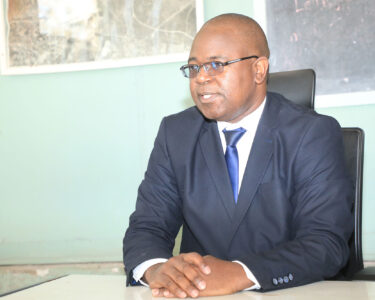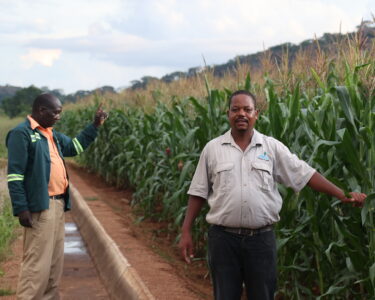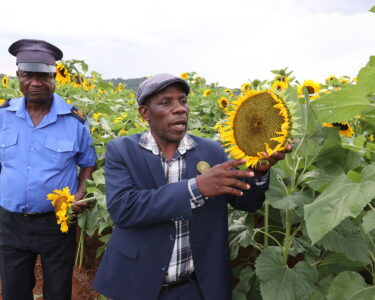Gokwe, which is usually referred to as a rural outpost in the Midlands Province, is best known for producing some of the country’s finest cotton. While the ‘white gold’ has transformed the lives of families in Gokwe, five young men from Tongwe or Nyarupakwe in Mhondiwa Village have decided to break the mould by dumping the “white gold” in favour of the “golden leaf”. Our Editor-in-Chief Munyaradzi Huni braved treacherous roads all the way to Mhondiwa Village to hear their fascinating story . . .
The Brick by Brick photographer, Tawanda Mudimu, who doubles as the magazine’s driver, is best known for two things – his patience and his love for speed when behind the wheel. It is because of the latter that we now call him “our own Michael Schumacher”. Thanks to his patience, Mudimu will drive all day on some of the country’s worst roads for hundreds of kilometres with a smile on his face and his favourite energy drink by his side.
During our 130 km trip to Mhondiwa Village, “Michael Schumacher” was in high spirits as evidenced by his endless jokes. After the first 100 km, however, the dust road gave way to a winding track and Mudimu found himself navigating the vehicle between thick, thorny bushes. It got so bad that at some stage, we lost track of the lead vehicle directing us to the village.
And for the first time in about eight months, our very own “Michael Schumacher” began to lose his composure. “Guys, let’s turn back. There is no road here. We are at risk of damaging the car,” he protested, a frown on his face. However, our companion for the day, the Gokwe South crop specialist, Nancy Mandebvana, pleaded with us to persevere. “No, no! We can’t back. Not now! The young farmers are waiting for us. We are almost there,” she cajoled us.
It later turned out that this talk of being “almost there” was a half-truth. But we were literally trapped between a rock and the proverbial hard place. There was no room to make a U-turn, never mind reversing the vehicle. It was “forward ever” and our “Michael Schumacher” had no option but to “nurse” the car on a track just wide enough to accommodate a cyclist. Mudimu’s patience had been tested to the limit but 20 km later, we finally reached our destination, much to our — and the hosts’ — relief.
Because our hosts were so keen to tell their story, they did not mind the long wait. The de facto leader of this enterprising group of young farmers is Takura Nyashanu, who welcomed us against the backdrop of his lush tobacco crop.
This is his story: “We each have pieces of land ranging from five hectares to about seven hectares. Our parents relocated to Gokwe from Masvingo a long time ago. Cotton growing was all they knew. In fact, it was the proceeds from the ‘white gold’ that paid for our school fees. Under the prevailing circumstances back in the day, I would like to congratulate our parents for a job well done.
“However, on leaving school after completing our O-Levels, we opted to break with tradition. In 2013, the five of us – Tinashe Nyashanu, Moster Mushambi, Ezekiel Mugwambami, Mike Mungwambami and myself — decided to venture into tobacco farming. As it was a journey into the unknown, we enrolled for a one-year course in Banket to prepare us for a career as tobacco farmers.
“When our peers heard about our plans to venture into tobacco farming, many dismissed us as drug addicts since Gokwe is synonymous with cotton. In actual fact, before venturing into tobacco, we tried our hand at cotton. Even though the returns were good, we wanted a new challenge and tobacco beckoned. That was in 2014.
“It’s less than 10 years since we went into tobacco farming and we have no regrets whatsoever. In fact, for the rest of our lives, we are going to be full-time tobacco farmers. To prove that we are not going back on our word, we have installed irrigation infrastructure to water our tobacco fields. We have since laid 800-metre-long pipes to draw water from the nearby mountains with the help of gravity.
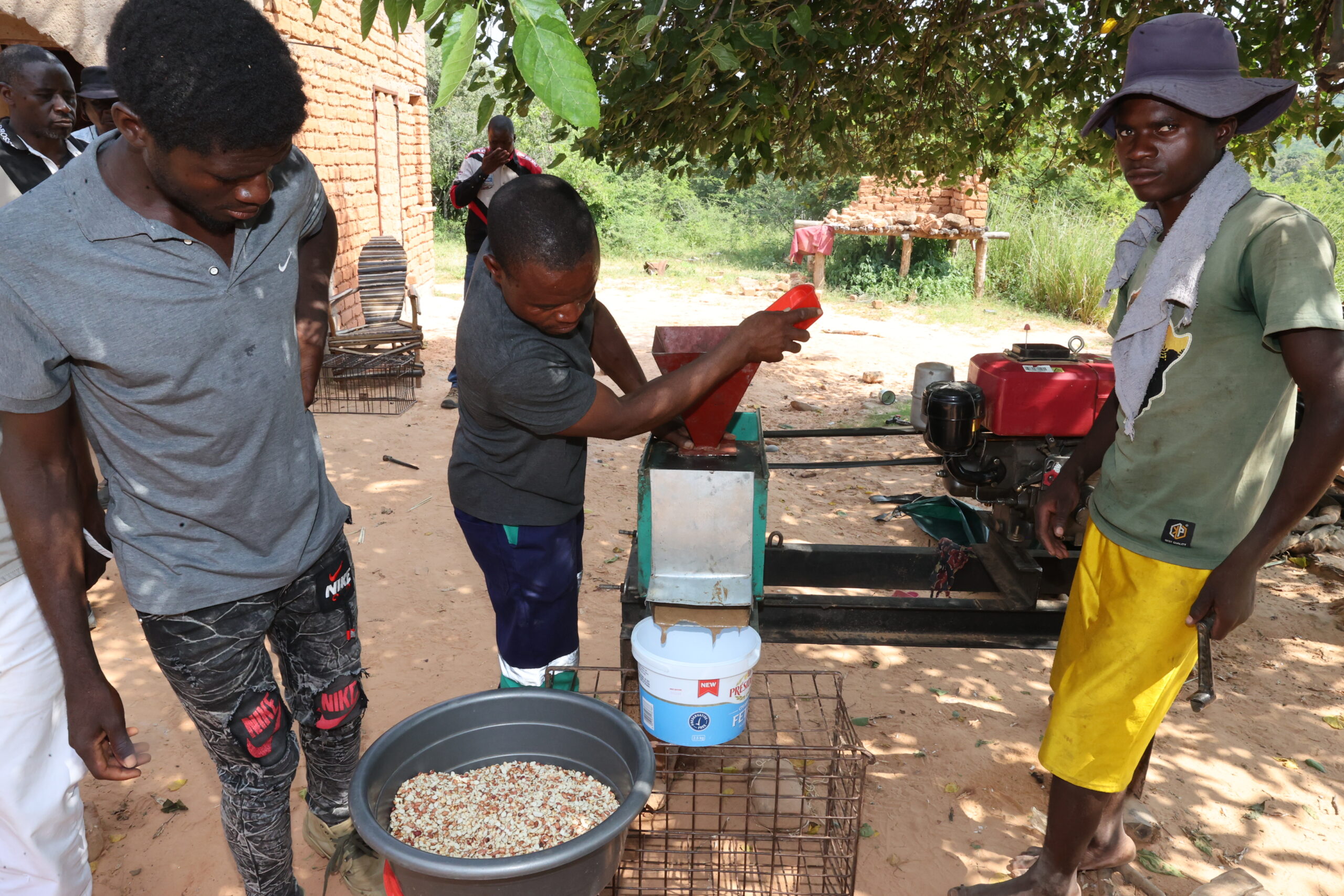
“Since I ventured into tobacco, there is nothing but happiness in my family. I am now able to meet all their basic needs as well as pay school fees for my children. My first born son, Takudzwa, has successfully completed a course in panelbeating and is now gainfully employed.
“I have since bought a grinding mill. Before that I had bought myself a car.
“There are some people, especially among the youths, who believe tobacco growing is not for the faint-hearted. Isn’t it they say no pain, no gain? If you want to change your life for the better, you must be prepared to get your hands dirty. We are now an inspiration to many people in this area. A good example is Baba Mugwambami, who is much older than us, but decided to join us upon realising that there were rich pickings in tobacco.
Nyashanu insisted that despite the long distance to the Harare-based tobacco action floors, the rewards were still worth it. “Last year I bought a peanut butter making machine. Now my fellow villagers bring their peanuts to my homestead for grinding, which I do for a small fee,” said Nyashanu, who begrudgingly admitted that growing tobacco was not always smooth sailing.
“We are appealing to government to avail fertilisers and other inputs to us,” he confided in Brick by Brick. “We also face transport problems. We have to hire private vehicles to take our tobacco to Harare and, to make matters worse, the road from here to Gokwe Centre is in a very poor state.”
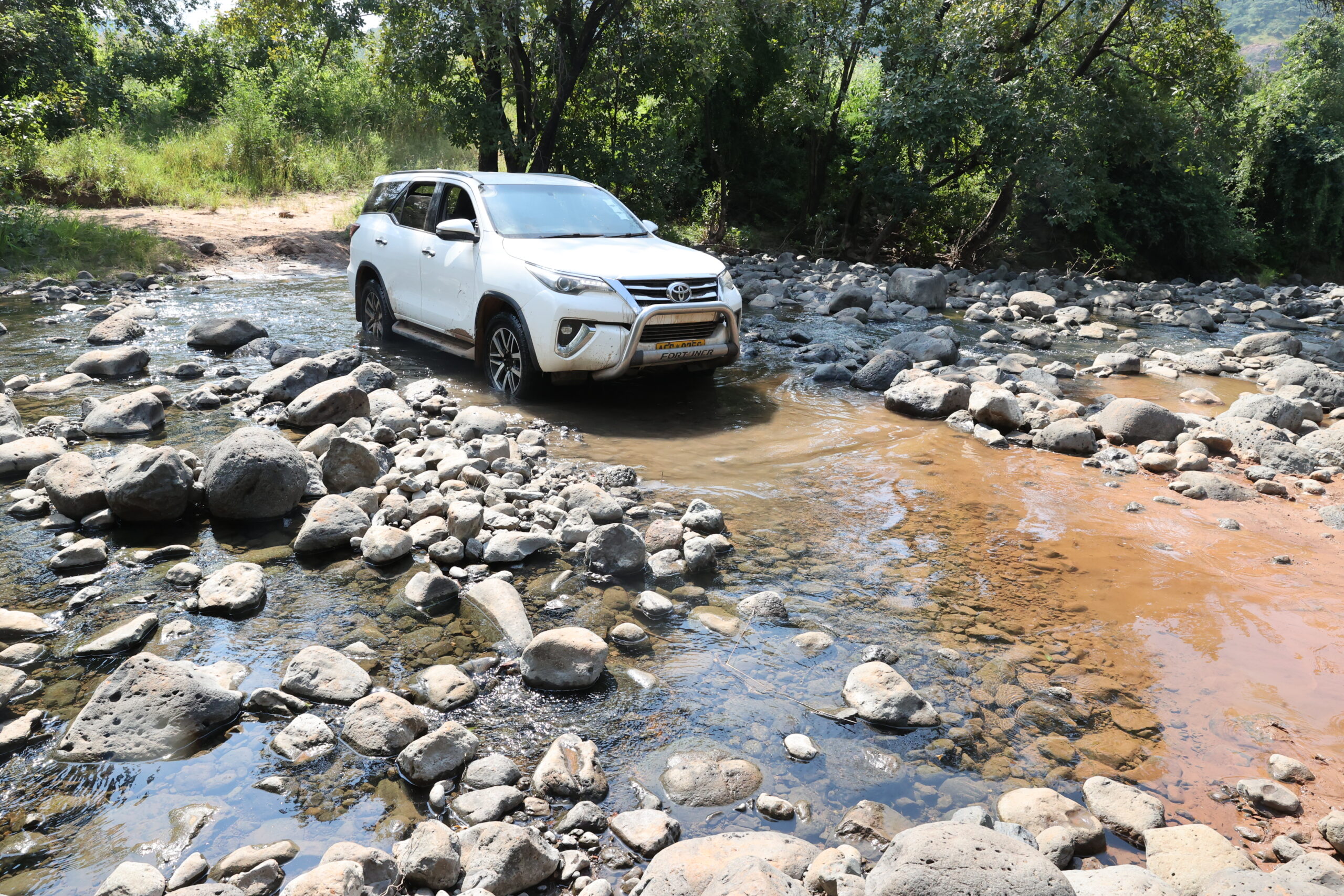
In the absence of well-wishers, the tobacco farmers had to rehabilitate one of the roads using their own manpower. As Nyashanu explained, this was not a job for weaklings: Taichera gomo nemaoko edu. Kupaza gomo nekuwisa miti mikuru kusvika paita road, he told Brick by Brick.
Nyashanu also lamented the attitude of banks, who had turned their backs on them. “It’s unfortunate that financial institutions turn down our funding applications on the basis that our group is too small. I am sure if we get funding, we will take tobacco farming to a higher level in Gokwe South. For now we are on our own. It’s like we are orphans, but we are not losing hope. Slowly, but surely we will get there.
“Last year I got 900 kg of tobacco and this year I am expecting to double that. However, two of our three tobacco barns were destroyed by the rains. It means we only have one left. This is going to affect our harvest significantly. We have secured a makeshift tent, although we know it is not the best solution.
“We also need a tractor to replace the ox-drawn ploughs we are currently using. Until we secure a tractor, we cannot increase our hectarage. We are, therefore, appealing to anyone who can sell us a tractor on mutually agreeable credit terms,” opined Nyashanu.
Despite the challenges, Nyashanu remained optimistic. “We now want to promote rural industrialisation. In a few years’ time, there will be no need for youths from Mhondiwa Village to go to Harare in search of jobs. We want to create the jobs here. We will start small and grow over the years,” declared the effervescent Nyashanu.
Equally buoyant was Ezekiel Mugwambami: “We are not looking back. We are creating our own industry here and we want to demystify this colonial mentality that jobs are to be found only in Harare.”
It was now left to Mandebvana to put a seal on the day’s proceedings. “As a crop specialist, I am happy with the way these young farmers came together and ventured into tobacco farming. Their tobacco crop looks good. I am also happy with their determination to succeed. This is nyika inovakwa nevene vayo right here in Gokwe.
“However, as they have already articulated, these farmers are facing quite a number of challenges, to do with equipment, a poor road network and poor marketing. These young men deserve assistance. Without any support, they have shown that they are passionate about tobacco farming,” she said while pledging to do everything in her power to help them win government support.
The last word came from acting district administrator for Gokwe District, Tawanda Chakata, who had this to say: “In our quest to contribute significantly to Vision 2030, we are encouraging farmers in Gokwe to also venture into tobacco farming. I am happy that the project by these five young men has been a roaring success despite the lack of external support. We are going to make sure that these young tobacco farmers get all the assistance they need. They have demonstrated that they are determined kuvaka nyika yavo and we should give them all the necessary support.”
Before bidding our farewells, Brick by Brick had an opportunity to sample some of the fruits of tobacco growing in the form of grinding mills and peanut butter making machines.
In social media circles they say Gokwe yazviita zvakare! Well, after witnessing first-hand what our hosts have achieved in such a short space of time, what more can Brick by Brick say?



